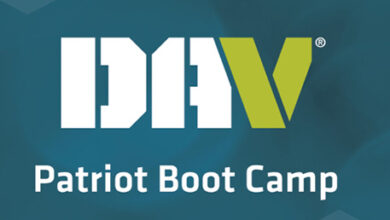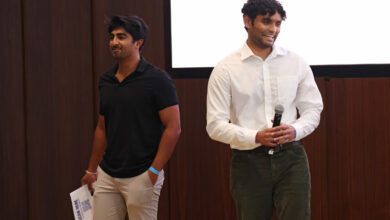To Unlock Your Entrepreneurial Potential, Look Inside Yourself

.
The road to success in business—and in life—has always been strewn with challenges. But that’s okay, because overcoming challenges is much of what success is all about.
In our conflict-ridden, post-pandemic world, attaining success is arguably more difficult than ever.
Are you an entrepreneur, someone who’s created a new business while bearing most of the risks and enjoying most of the rewards? Or are you an intrapreneur, an employee who’s tasked with developing an innovative idea or project within someone else’s company? Either way, you can likely use all the sound advice you can get.
Some excellent—and very timely—advice can be found in SHINE: How Looking Inward is the Key to Unlocking True Entrepreneurial Freedom.
Authors Gino Wickman and Rob Dube share disciplines that can help you stay sharp and energetic without burning out. Wickman, author of the award-winning bestseller Traction, is creator of EOS® (Entrepreneurial Operating System®) and cofounder of EOS Worldwide, one of the world’s largest business coaching companies. Hundreds of thousands of companies use the EOS tools to help entrepreneurial leaders run a business and obtain better life balance. Dube is cofounder of imageOne, a leading online business solutions company, and host of the Entrepreneurial Leap podcast. He teaches business leaders and entrepreneurs to enhance their effectiveness by looking inward with mindfulness.
Wickman and Dube hold the view that, even in our rush-rush world, it’s possible to be driven and have inner peace. But with burnout so common, it seems that a lot of people (particularly entrepreneurs?) didn’t get the memo. Virtually by definition, many entrepreneurs are driven to face the chaos and work really hard.
Gino Wickman
“Being driven is both a blessing and a curse,” Wickman says. “There’s some good and some bad stuff. The point is to accept it, embrace it, understand it, and most importantly, manage it. The driven are the creators of most things in this world. The blessing is that they are amazing visionaries in all industries. They are born with superhuman stamina and strength that, in the majority of cases, make things better.”
The curse, he says, is that with their intensity they do a lot of damage to themselves and the people around them.
“The driven are always ten steps ahead and can seem crazy to many,” Wickman says. “They wonder why people can’t keep up with them and why others get frustrated with them. The driven see what the rest of us don’t. When the driven person manages their driven nature properly it leads to more energy, greater impact, and peace. They begin to attract better employees, retain their best employees, have deeper trust and understanding for each other, and attract better customers and better vendors, all which lead to greater workplace/work life satisfaction and happier people.”
The authors talk about the role of love and fear in a person’s decision-making.
Dube says that when they raise the issue of love and fear in the workplace, head nod. “This resonates very quickly with driven entrepreneurs,” he says. “The reality is they are making their decisions from love or fear. Love is a heart-based decision, and fear is an ego-based decision. It’s important to understand that the ego creates fear and a structure that causes people to hang on to emotional attachments with things, people, and outcomes in life, leading to decisions that are not best for them.”
Fear-based decisions, he says, “stem from an internal block that needs to be removed. When the block is removed and a person lets go, their energy soars and they become more of their True Self. So, bringing awareness to the type of decisions they are making allows them to remove the blocks and shed layers, and then make more decisions from love—from the inside out—and be free. Making even 10% more love-based decisions will have a huge impact.”
Rob Dube
Dube says most decisions are made from fear. An example of a fear-based decision is a driven entrepreneur who learns a competitor brought on a new product line. “Without much thought, entrepreneur decides to jump on the bandwagon and begin offering the same product line to keep up,” he says. “The decision to bring on the new product line creates havoc on the team—they have to pivot from what they were focused on, change systems, train salespeople, and the like.”
He says that same decision, made from love, is when the person slows down, reviews the company’s 10-year vision, the market conditions, and collaborates with team members and customers. “In addition, she gets quiet and allows the answer to come to her versus being overly analytical,” he says. “In this case, the decision is to stay focused on current offering and dominate the market.”
For driven entrepreneurs, Dube says, part of the love-based decision is a feeling—“Is this who we are as a company and, what do we want in our lives?”
Wickman and Dube quote the adage that “People overestimate what they can accomplish in a year, but underestimate what they can do in ten years.” If that’s true, I asked, why? And how can an entrepreneur benefit from the “10-year Thinking” mindset?
“Driven entrepreneurs are focused on the short term,” Dube says. “They want everything now. They have a sense of urgency that causes them a great deal of anxiety. When they shift their mindset from short-term thinking to thinking in 10-year timeframes, time slows down with the realization that there is time to get where they want to go. When time slows down, there is clarity. With clarity comes better decisions (love-based). Better decisions end up getting you there faster—and with a greater sense of inner peace.
For many people, work shapes their identify. So, what’s their advice on how hard-charging people can learn to “take time off” and genuinely let go of their work?
“The driven are intense,” Wickman says. “They get a rush from the dopamine hit of business. It’s like a drug. But our minds and bodies need to slow down, turn completely off, and recharge.”
Wickman says he and Dube teach people to take time off and not think about work the entire time.
“For many, taking time off isn’t the issue,” Wickman says. “To the driven entrepreneur, sitting by the pool at a resort with their laptop answering emails or reading the latest business book is taking time off. That’s not taking time off. Taking time off is completely turning all business off. It takes work and preparation, but it is possible. Being away, completely unavailable, allows for the mind and body to settle down. The driven entrepreneur comes back from their time away (even if just a weekend) reenergized, clearer, and more peaceful. When this happens, there is more clarity. Space is created for new ideas and attracting new opportunities.”
Aside from profiling tools like Enneagram, what’s a good process for helping people get clarity on—and be true to—their real selves?
“All personality profiling tools are a great start because they give us different insights into who we are,” Dube says. “Another recommendation we make is to ask the five people you are closest with in your life to make a list of your strengths and weaknesses.”
He says silent contemplation, prayer, and/or meditation are also useful. “We recommend that you bring awareness to areas of your life where you are being a chameleon, just fitting in, instead of being 100% you in every instance. Make a list at the end of every day for two weeks and contemplate on why you were a chameleon at times and what it would have been like to be your True Self in those situations.”
.
Wickman and Dube also recommend writing what they call a “Who Am I Statement.”
“The ‘Who Am I Statement’ provides a picture of who you are, what’s important to you, and what you stand for,” Dube says. “It’s exhausting when we aren’t clear about who we are, and this drains our vibrational energy. People pick up on it. Once you become clear about who you are, everything becomes easier because you no longer are constrained by the suit of armor you have been wearing. Once the suit of armor is off and you are clear about who you are, you are free. It’s like running a race with the suit of armor versus shorts and a T-shirt.”
Dube says journaling can help people “unplug” from day-to-day pressures.
“Journaling is a wonderful way to transfer all the noise in your mind to paper,” he says. “You can write fast or slow, re-read or not re-read, and even draw (some people express their feelings better this way). It’s freeing to get it out, and when we do it allows for more clarity, the ability to see patterns and themes in our lives, provide perspective, and greater self-awareness. Doing this on a regular basis can help reduce anxiety and depression, which is a common trait among driven entrepreneurs.”
What seem to be the keys to removing excess baggage and concentrating one’s attention on the most important activities that make the greatest impact?
“Driven entrepreneurs believe they can do it all, but they don’t excel at or love most of it,” Wickman says. “They must eliminate all things that are not in their unique ability or sweet spot. By focusing on the activities in their sweet spot and committing to clear boundaries to protect their time and energy, they will make a much greater impact.”
Then, of course, there’s the issue of FOMO—fear of missing out. What role does it play in people’s reluctance to say “no” to requests for their time, attention, and other resources? What’s a better “rule” for saying no?
“When a driven person is successful in business, opportunities begin to present themselves regularly,” Dube says.” Every day, the making ten times more decisions than most people—decisions like who to hire, what market to enter, should I do that podcast, join that board, partner with that person? It takes years of hard work to get to this point and when the opportunities come, it’s hard to say ‘no.’”
He says that for every ten opportunities, driven entrepreneurs are saying yes to eight of them. “This spreads them too thin and has a domino effect on their mental and physical energy as well as disrupts their team. We passionately plea that for every ten opportunities, slow down, make sure you’re making the decision from love, and choose two of the ten instead of eight. You’ll do better with those opportunities because you’ll have more focus, clarity, energy, and inner peace, which will lead to greater impact.”



